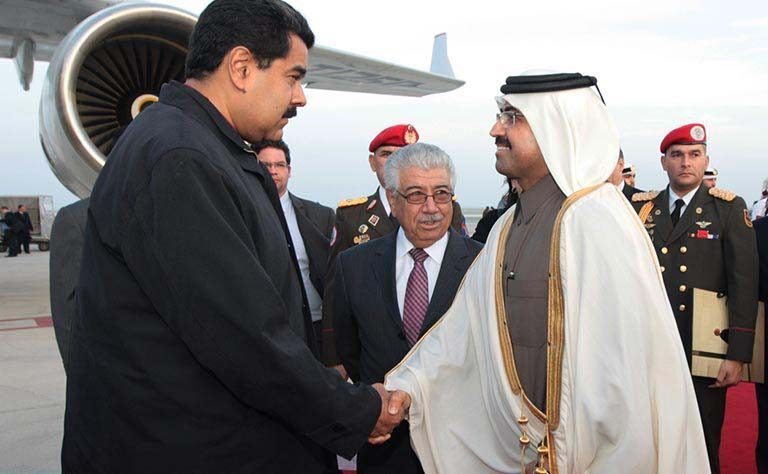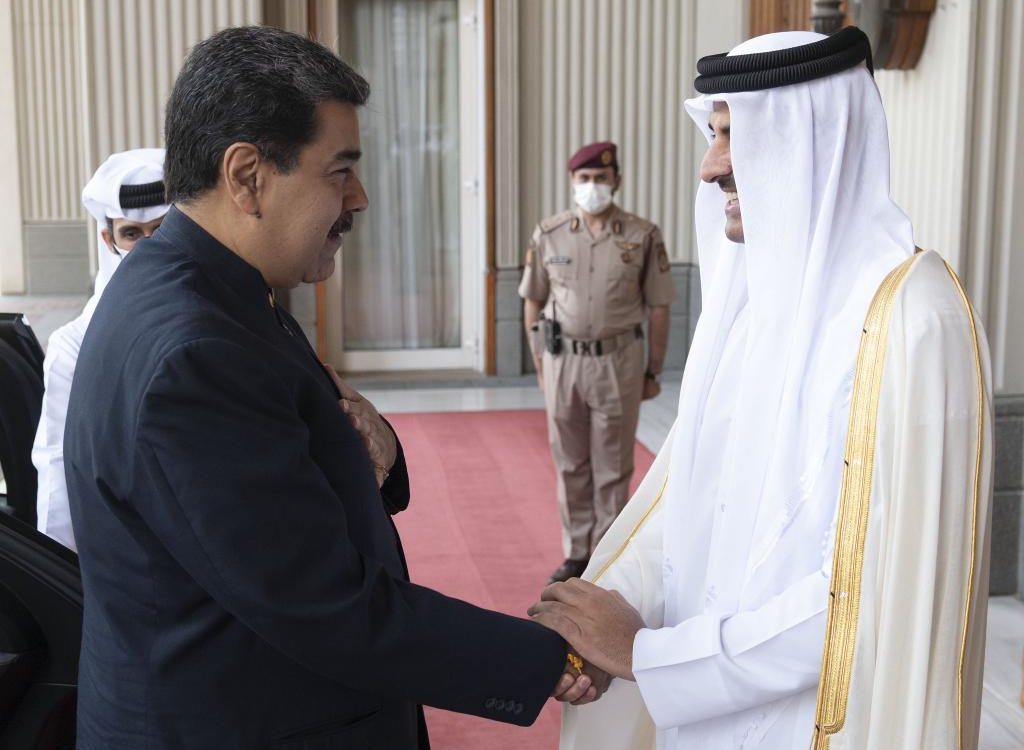
Qatar has agreed to boost food imports from Venezuela and lend the South American state billions of dollars to help it cope with the fallout of plummeting oil prices, Venezuela’s leader reportedly said.
President Nicolas Maduro was in Doha as part of swing through the region as he tries to convince OPEC nations to cut oil production to boost prices and increase the flow of revenues into government coffers.
While his appeals appear to have fallen on deaf ears in the Gulf, Maduro appears to have significantly expanded the nascent relationship between Qatar and Venezuela and said he left with a promise from the Emir of cash as well as investments in his country’s agriculture sector.
Food security
Shoring up secure sources of food is a high priority for Qatar, which overwhelmingly relies on agricultural imports to feed its growing population.
“Qatar has a special fund to invest in food production,” President Nicolas Maduro said, according to Venezuela’s state news agency. “These countries are in the desert, so they import many foods. We will develop the agricultural sector … We are building (export channels to bring) quality products to this region. (Qatar is) very interested in this.”
In the run-up to the official visit, Venezuelan newspaper El Universal said that country’s embassy in Doha was particularly interested in boosting sales of shrimps, fruits such as mango, rice, cocoa and coffee to Qatar.
The trading relationship between the two countries is currently modest, El Universal reported. Between 2009 and mid-2014, non-energy exports from Venezuela to the Gulf country totalled only US$131,000, while sales from Qatar to the South American nation added up to $3.6 million.
Oil prices
Those trade figures are dwarfed by the size of the financing deal Maduro said he had secured to shore up his country’s public balance sheet, which has been hit hard by the plunging price of oil.
“We’re finalizing a financial alliance with important banks from Qatar that will give us sufficient oxygen to help cover the fall in oil prices and give us the resources we need for the national foreign currency budget,” he told his country’s state broadcaster, Bloomberg reported.

Maduro did not provide any additional details. Qatar has not commented on the deal, saying only that two countries showed interest during their meeting in enhancing cooperation in various fields including investment, oil and gas, and agriculture.
During his trip through the region, Maduro has met with officials in fellow OPEC members Iran, Saudi Arabia and Algeria to discuss the oil market and press for output cuts.
The Gulf countries, led by Saudi Arabia, have shown little interest in cutting oil production to raise prices. Late last year, officials from Saudi Arabia blocked calls from poorer OPEC members for the oil exporting organization to reduce output.
Reuters, citing unnamed diplomatic sources, reported that Qatar shares the stance of its Gulf neighbors and expressed concern about prices during its meeting with Venezuelan officials but made no promises or commitments as to what action should be taken.
Qatar derives most of its resource wealth from natural gas, the price of which is tied to oil.
The country’s large financial reserves should help the government shoulder a period of low oil prices. However, authorities will be under pressure to cut costs – likely by delaying or canceling pricey construction projects.
Thoughts?







